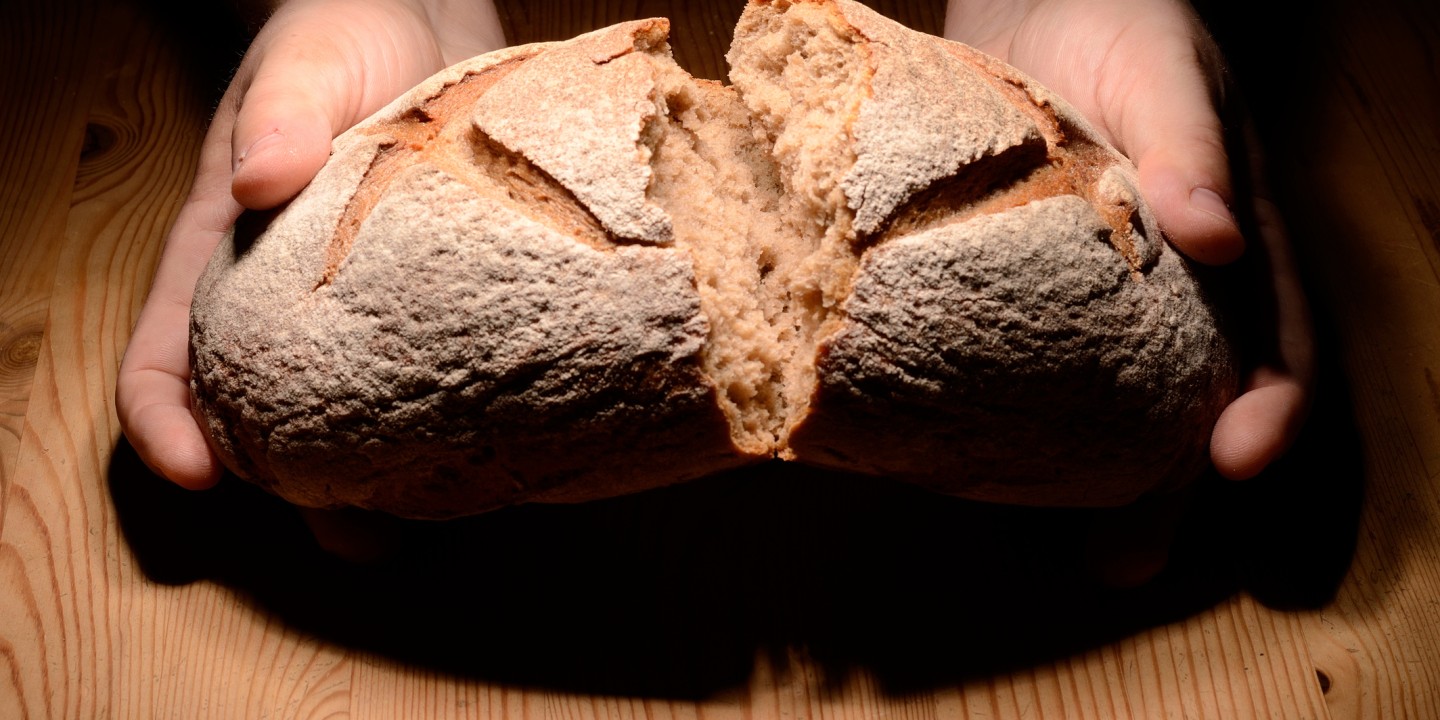In West Virginia, the teachers’ strike made new space for Eucharistic living
A church on my street fed food-insecure kids while schools were closed. The work of justice flowed outward from the table.

Earlier this year 37,000 teachers went on strike in West Virginia. For nine school days they marched on our capitol and lined the streets of cities and towns, standing in snow and rain to protest injustices they could no longer tolerate. Elected officials tried to cajole and shame the teachers, making it clear that tax breaks for extractive industries—a major cause of the crisis in school funding—were nonnegotiable.
When the strike was finally resolved, media observers struggled to make sense of it. A wildcat strike, after decades of organized labor’s decline? And in Trump country, no less? From the start of the 2016 presidential race, West Virginia was deemed ground zero for the archetypal put-upon Trump supporter—the disaffected hillbilly who votes against her own interests seemingly out of spite.
This tidy telling is undercut by even a basic understanding of labor history in West Virginia (the Battle of Matewan, anyone?). And it exempts those who embrace it—including many Appalachians—from the paternalism that has long disdained the region’s poor while simultaneously trying to impose self-improvement programs on them. None of this has gone to the root of the inequities that have made coal barons rich and the rest of the country relieved they don’t live here.
So when teachers walked out of their classrooms, they contested conventional wisdom and tired narratives. They revealed to those with their eyes open that “West Virginia” is not code for the grim politics of fear and exclusion that can be found in every region of the United States. For, as public historian Elizabeth Catte has observed, we all live in Trump country now.
What I saw unfold over those days was a subplot in the complicated story that is West Virginia. As the walkout loomed, teachers and community organizers across the state made plans for how food-insecure children would be fed for the strike’s unknown duration. That many children get their only real meals in school cafeterias is a national scandal, not just Appalachia’s problem. But again, the stories we’ve consumed for generations have painted a picture of the region’s poverty and hunger as outlier conditions to the rest of America. Recall the photographs from the 1960s War on Poverty, their bleakness a searing visual for the inviolable narrative of Appalachia’s brokenness.
At the small Methodist church on the street where I live, an operation was set in motion to feed at-risk children. Retirees and people who work full-time and people without jobs gave their time, money, and energy to make nutritious meals in the basement kitchen for some 1,100 people—kids, parents, and the teachers picketing long hours across the street. The church volunteers told stories of how their own prejudices were confronted, how their goodwill was taken advantage of (food stolen from the refrigerator), how the community’s problems and possibilities were on full display for nine hectic days.
I was struck by how eucharistic it all was. In the sanctuary above that basement, worshipers gather regularly to share in a ritual meal that can seem—to Methodists and other Christians alike—symbolic, “spiritual,” unrelated to other meals and other kinds of eating. But the simple gifts we take into our bodies at Christ’s table are sustenance for living eucharistically in the world: for practicing the kind of hospitality Jesus practiced when he fed hungry followers and ate with all the wrong people. Our own bodies are meant to nourish other bodies—not to judge them or try to fix them but to love them, and to see that their flourishing (and our own) depends on exposing and redressing systemic inequalities of all kinds. In this way, the Eucharist is always justice in the midst of injustice, reconciliation in the midst of estrangement, communal conviviality in the midst of private pain and loneliness.
When food-insecure people were welcomed into a church basement for nine days in late winter, the work of justice flowed outward from the table to the neighbor in need. And while some saw only makeshift public assistance or do-good religion (more one-dimensional stories that made the news), it was more accurately an embodiment of gospel kinship and mutuality, a recognition of our shared vulnerabilities and shared destinies. All of us must eat to live and all of us belong to each other. It also provided an occasion, as Greg Boyle has said of his work in Los Angeles, to stand in awe at what the poor carry rather than in judgment at how they carry it.
When you’re from West Virginia you learn early that you’ll always encounter ignorance about the place where you live. You’ll endure offensive jokes told by people who seem sure you’ve never heard them before. You make your peace with this.
And then one day, in a season of political hopelessness, the teachers in my state announced—resolutely but without hostility—that they weren’t going to take it anymore. I remembered the teacher who introduced me to these lines by Seamus Heaney:
History says, don’t hope
On this side of the grave.
But then, once in a lifetime
The longed-for tidal wave
Of justice can rise up,
And hope and history rhyme.
And I was glad that I, too, am a teacher in this place.
A version of this article appears in the print edition under the title “Eucharistic living.”





